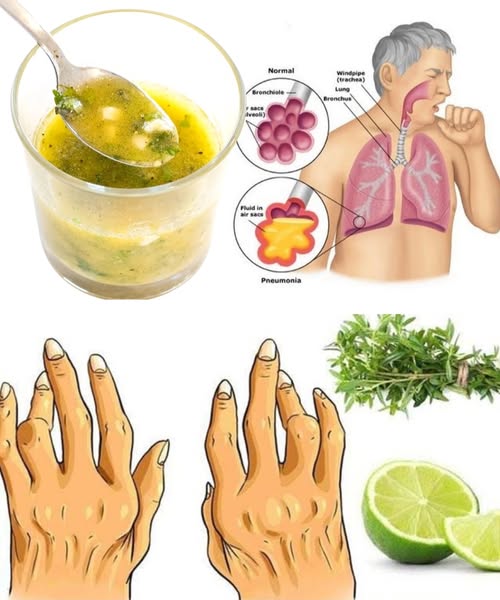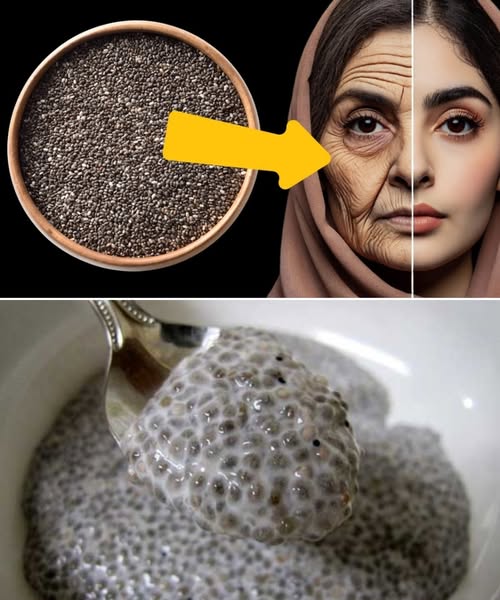Introduction
Arthritis and chronic inflammation are among the most common health concerns worldwide, affecting over 350 million people globally. These conditions not only cause persistent joint pain and stiffness but also significantly reduce quality of life. While conventional treatments such as prescription medications and physical therapy remain essential, many individuals are now turning to natural remedies for additional relief.
One of the most promising natural combinations is thyme and lemon. This simple duo—commonly found in kitchens—offers powerful anti-inflammatory and antioxidant properties that may help ease arthritis symptoms naturally. But what makes thyme and lemon so effective? And how can you incorporate them into your daily routine for maximum results?
In this blog, we’ll explore:
- The science behind thyme and lemon for arthritis and inflammation
- Proven benefits supported by research
- Practical recipes and methods of use
- Answers to frequently asked questions
- Actionable tips to enhance effectiveness
By the end, you’ll understand why thyme and lemon are more than just culinary staples—they’re potential game-changers for managing arthritis naturally.
The Science Behind Thyme and Lemon
Thyme: The Anti-Inflammatory Herb
Thyme (Thymus vulgaris) is a Mediterranean herb celebrated for its culinary and medicinal uses. It contains thymol, carvacrol, rosmarinic acid, and flavonoids, all of which contribute to its therapeutic effects.
- Anti-inflammatory effects: Studies show that thymol reduces the production of pro-inflammatory enzymes such as COX-2, which play a role in arthritis pain.
- Antioxidant protection: The herb neutralizes free radicals, slowing down joint tissue damage.
- Immune regulation: Thyme modulates immune responses, which can reduce the autoimmune activity seen in rheumatoid arthritis.
Lemon: The Vitamin C Powerhouse
Lemon is rich in vitamin C, citric acid, and flavonoids like hesperidin and eriocitrin.
- Collagen synthesis: Vitamin C supports collagen formation, helping maintain cartilage and joint health.
- Detoxification: Lemon promotes liver function, which is essential for removing toxins that worsen inflammation.
- Alkalizing effect: Despite being acidic, lemon has an alkalizing effect in the body, which may reduce inflammatory responses.
When combined, thyme and lemon create a synergistic effect, enhancing each other’s anti-inflammatory, antioxidant, and immune-boosting properties.
Benefits of Thyme and Lemon for Arthritis and Inflammation
- Reduces Joint Pain and Swelling
Regular consumption of thyme tea with lemon can help relieve pain and stiffness associated with arthritis by lowering inflammatory markers. - Improves Mobility
Anti-inflammatory compounds support better flexibility and reduce morning stiffness—a common complaint among arthritis patients. - Protects Cartilage and Joints
The antioxidants in thyme and vitamin C from lemon help preserve joint cartilage, slowing down arthritis progression. - Boosts Immunity
Since some forms of arthritis are autoimmune disorders, strengthening the immune system with thyme and lemon can help regulate flare-ups. - Promotes Digestive Health
A healthy gut reduces systemic inflammation. Thyme aids digestion, while lemon balances stomach pH levels. - Supports Weight Management
Excess weight adds pressure on joints. Lemon water promotes metabolism, while thyme assists in regulating appetite.
How to Use Thyme and Lemon for Arthritis Relief
1. Thyme and Lemon Tea
- Ingredients:
- 1 tsp dried thyme (or a few sprigs fresh thyme)
- Juice of half a lemon
- 1 cup hot water
- Honey (optional)
- Method:
Steep thyme in hot water for 5–10 minutes, strain, and add lemon juice. Drink warm twice daily for best results.
2. Thyme and Lemon Infused Water
A refreshing way to stay hydrated and reduce inflammation throughout the day. Add lemon slices and fresh thyme sprigs to a water jug and refrigerate for 2–3 hours before drinking.
3. Essential Oil Blend for Topical Use
Mix a few drops of thyme essential oil with carrier oil and add a drop of lemon oil. Gently massage into swollen joints for relief.
4. Culinary Uses
Add thyme and lemon zest to soups, grilled vegetables, and fish dishes. Regular dietary inclusion enhances long-term benefits.
Frequently Asked Questions
1. Can thyme and lemon cure arthritis?
No, they cannot cure arthritis. However, they help manage symptoms, reduce inflammation, and improve joint function naturally when combined with a healthy lifestyle and medical care.
2. How long does it take to see results?
Some individuals report reduced stiffness within 2–3 weeks of daily use, but long-term consistency is key.
3. Are there any side effects?
Thyme and lemon are generally safe. However, excessive thyme may cause digestive discomfort, and lemon may erode tooth enamel if consumed in high amounts. Always use moderation.
4. Can I take thyme and lemon with arthritis medication?
Yes, but consult your doctor before making changes to your treatment plan. Thyme and lemon are considered safe but may interact with certain medications.
5. Who should avoid this remedy?
- Pregnant or breastfeeding women (thyme oil in large doses should be avoided)
- Individuals with citrus allergies
- Patients on blood-thinning medications (thyme has mild anticoagulant properties)
Statistics and Research Insights
- According to the World Health Organization (WHO), 1 in 5 adults worldwide suffers from arthritis or related inflammatory conditions.
- A 2018 study published in the Journal of Inflammation Research highlighted that thymol and carvacrol in thyme significantly reduced inflammatory markers in animal models.
- Research from the National Institutes of Health (NIH) found that vitamin C deficiency increases the risk of developing inflammatory arthritis by 45%.
- Surveys show that over 65% of arthritis patients seek natural remedies alongside prescribed medications, reflecting a strong interest in herbal solutions like thyme and lemon.
Tips for Maximizing Effectiveness
- Be consistent: Drink thyme-lemon tea daily for long-term results.
- Pair with anti-inflammatory foods: Include turmeric, ginger, and omega-3-rich foods in your diet.
- Stay active: Low-impact exercises like yoga or swimming enhance the benefits.
- Maintain healthy weight: Less pressure on joints means reduced pain.
- Use organic ingredients: Ensure thyme and lemons are free from pesticides for maximum potency.
Why This Remedy Stands Out
While many herbal remedies exist, the simplicity, accessibility, and proven science behind thyme and lemon make them unique. Unlike expensive supplements, they are affordable, easy to find, and versatile. This gives individuals with arthritis a safe, natural, and cost-effective option to complement their treatment.
Conclusion
Arthritis and inflammation may be widespread, but they don’t have to control your life. By incorporating thyme and lemon into your daily routine, you gain access to a powerful natural remedy that not only supports joint health but also enhances overall wellness.
From soothing teas to refreshing infused water and aromatic culinary dishes, this dynamic duo offers more than just flavor—it provides anti-inflammatory relief, immune support, and joint protection.
While thyme and lemon won’t replace prescribed medications, they can serve as a safe, natural complement to your arthritis management plan. Remember, consistency is key. Small daily steps—like sipping thyme-lemon tea—can lead to noticeable improvements in how you move, feel, and live.
Take the step today: make thyme and lemon part of your wellness journey and experience the natural path to arthritis relief.



